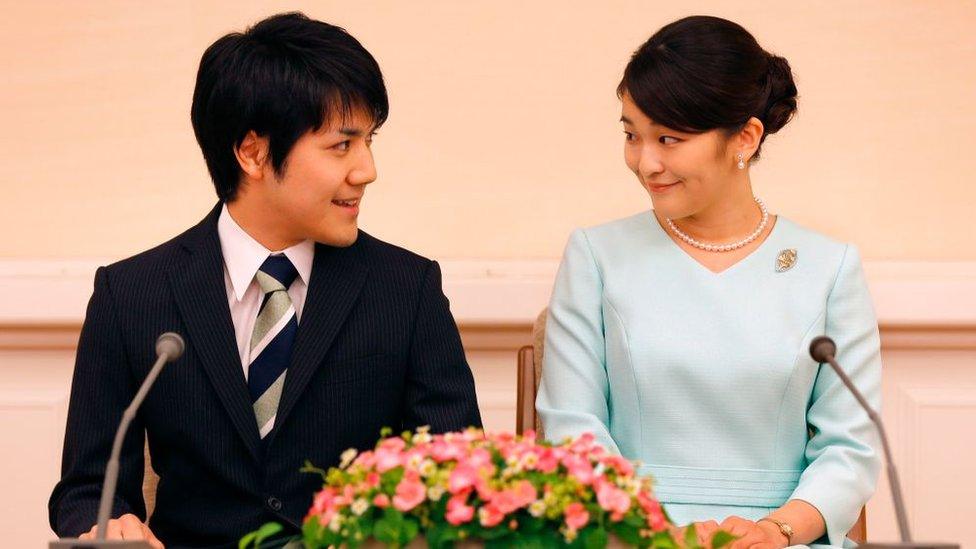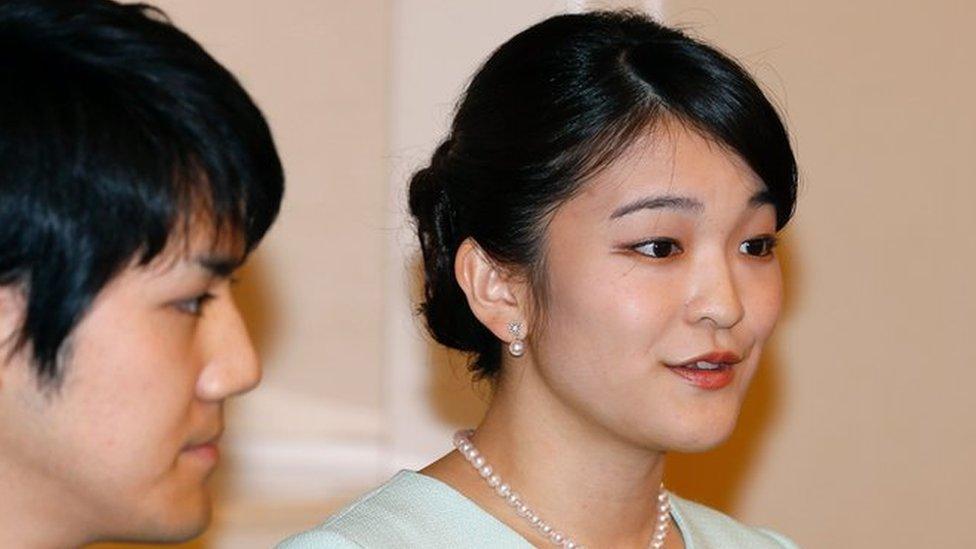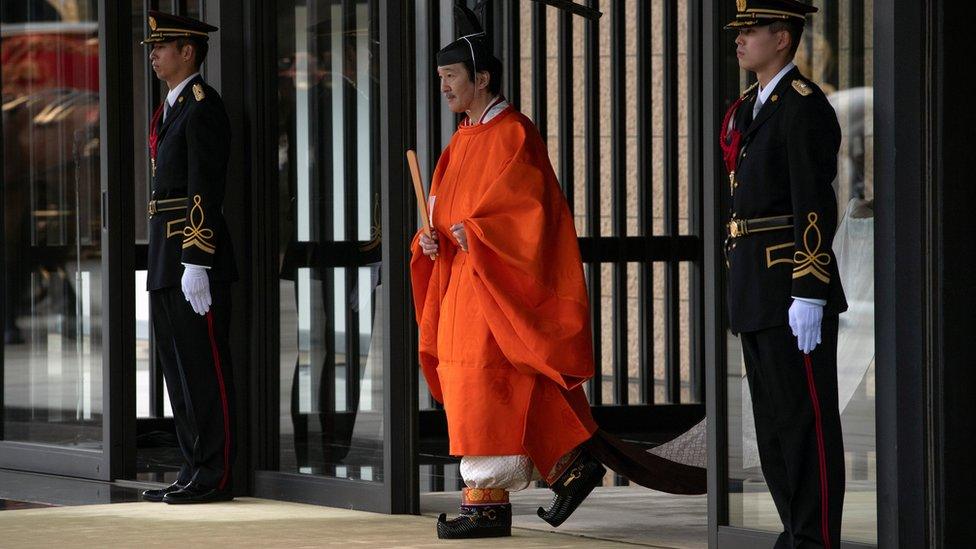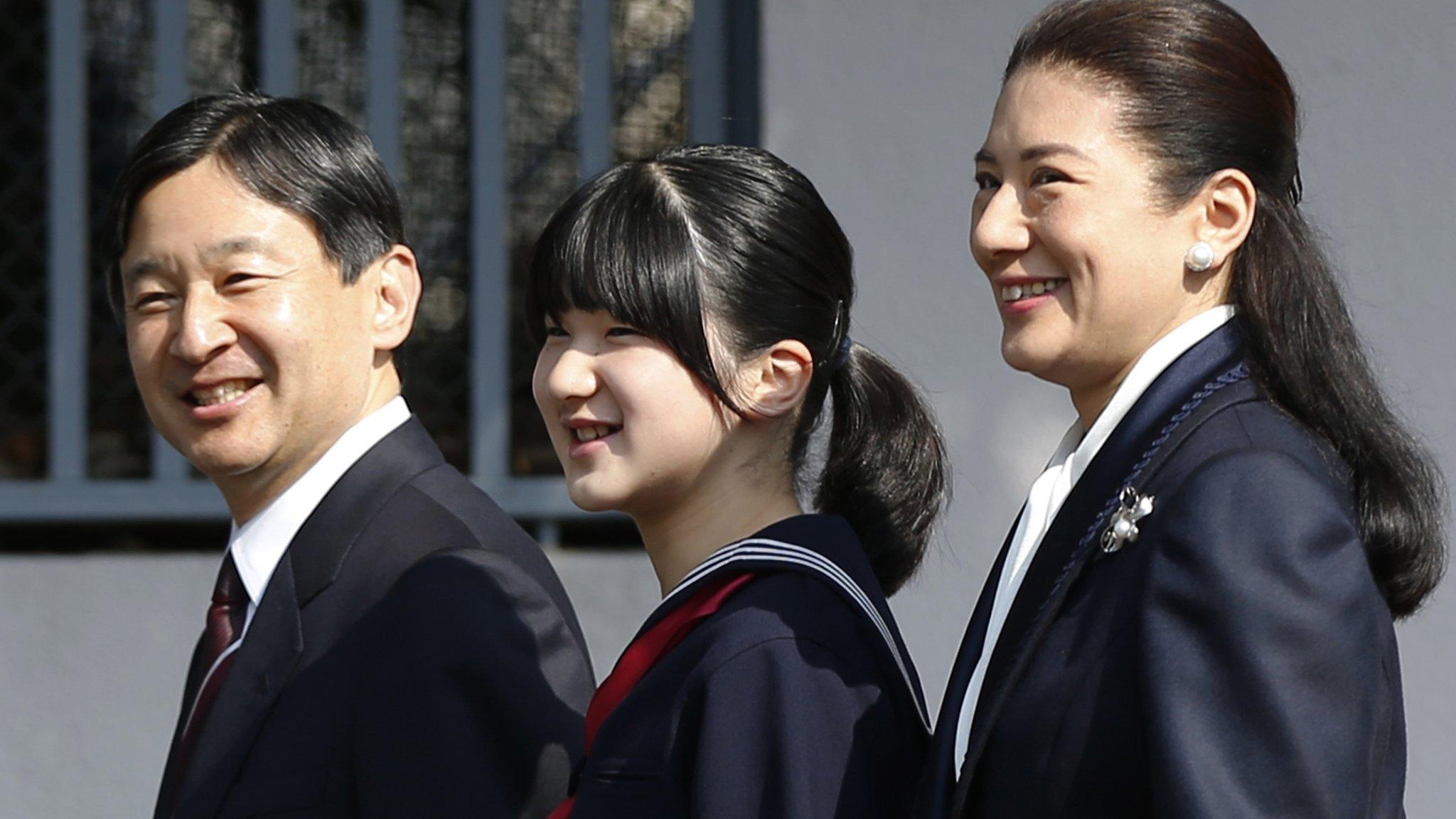Japan's crown prince 'approves' daughter's wedding
- Published

Princess Mako and Kei Komuro announced their engagement in 2017
Japan's Crown Prince Fumihito said he "approves" of his daughter's long-postponed plans to marry her university boyfriend, media reports say.
Princess Mako was originally set to wed non-royal Kei Komuro in 2018, a year after they announced their engagement.
The palace later denied the delay was linked to his mother's rumoured financial problems.
However, the prince reiterated the money issues must be dealt with first, according to Kyodo news agency.
"In order for many people to be convinced and celebrate (the marriage), I have said it is important for the issue to be dealt with," said the prince, the younger brother of Emperor Naruhito and the first in line to the Chrysanthemum Throne.
"From my point of view, I think they are not in a situation where many people are convinced and pleased (about their marriage)," Crown Prince Fumihito, also known as Crown Prince Akishino, added.
Mr Komuro, who is currently completing further studies at Fordham University's law school in New York, according to Kyodo, said last year his family had no financial difficulties.
He said the issue of an unpaid loan to his mother's ex-fiancé had been settled. But the former fiancé told local media the issue was unresolved.

The couple said they were postponing their wedding in 2018
It is unclear when the couple, both 29, will hold their ceremony. Princess Mako, the eldest daughter of Prince Fumihito and Princess Kiko, will be stripped of her royal status upon marriage to Mr Komuro.
But earlier this month she expressed her strong resolve to go ahead with the wedding, local media said.
Her father has now also backed it.
"The constitution says marriage shall be based only on the mutual consent of both sexes. If that is what they really want, then I think that is something I need to respect as a parent," he said, according to Kyodo, Japan's leading news agency.

Prince Akishino sounded less than enthusiastic about his daughter's choice of future husband in what has been a very on again, off again process. Why? It's both complex and prosaic.
Before World War II, Japan's imperial household would arrange marriages with distant cousins or the sons and daughters of aristocratic families. But Japan's US-imposed post war constitution set about to dismantle the aristocracy and dissolve minor branches of the royal family. All that is left is a core imperial household.
Today, Japan's young princesses have no choice but to marry commoners. Princess Mako appears to have set her heart on marrying her university sweetheart, Kei Komuro. Neither rich nor well connected, Mr Komuro's mother reportedly borrowed money from her then fiancé to pay for the young man's university education. Was the money a gift or a loan? Mrs Komuro says the former, her ex-fiancé, the latter.
Regardless, Crown Prince Fumihito does not appear to have been impressed by the way his prospective son-in-law dealt with the financial dispute.
But when she does marry Mr Komuro, Princess Mako will lose her royal title, and all financial support. She will become an ordinary citizen.
And this is the more prosaic explanation, told to me by a friend who has been observing Japan for more than 25 years.
"It's the same reason so many young Japanese couples struggle to get married," he said "He doesn't have the right job with employment for life. Twenty years ago, 80% of Japanese men had life-time employment. Now it's less than 50%. The so-called Japanese dream has now become unattainable for many young people."

You may also be interested in...
Prince Fumihito was officially declared heir to the throne in November
- Published8 November 2020

- Published6 February 2018

- Published19 May 2017

- Published9 June 2017
